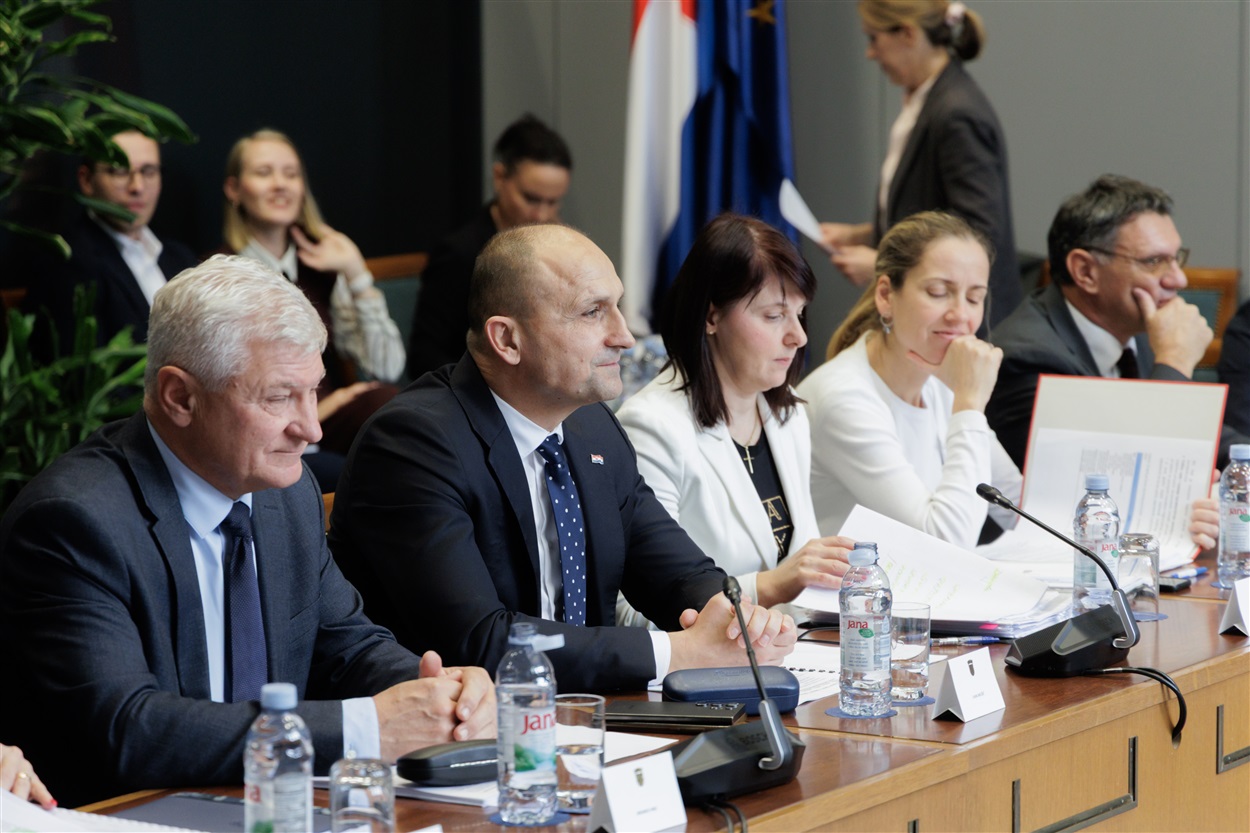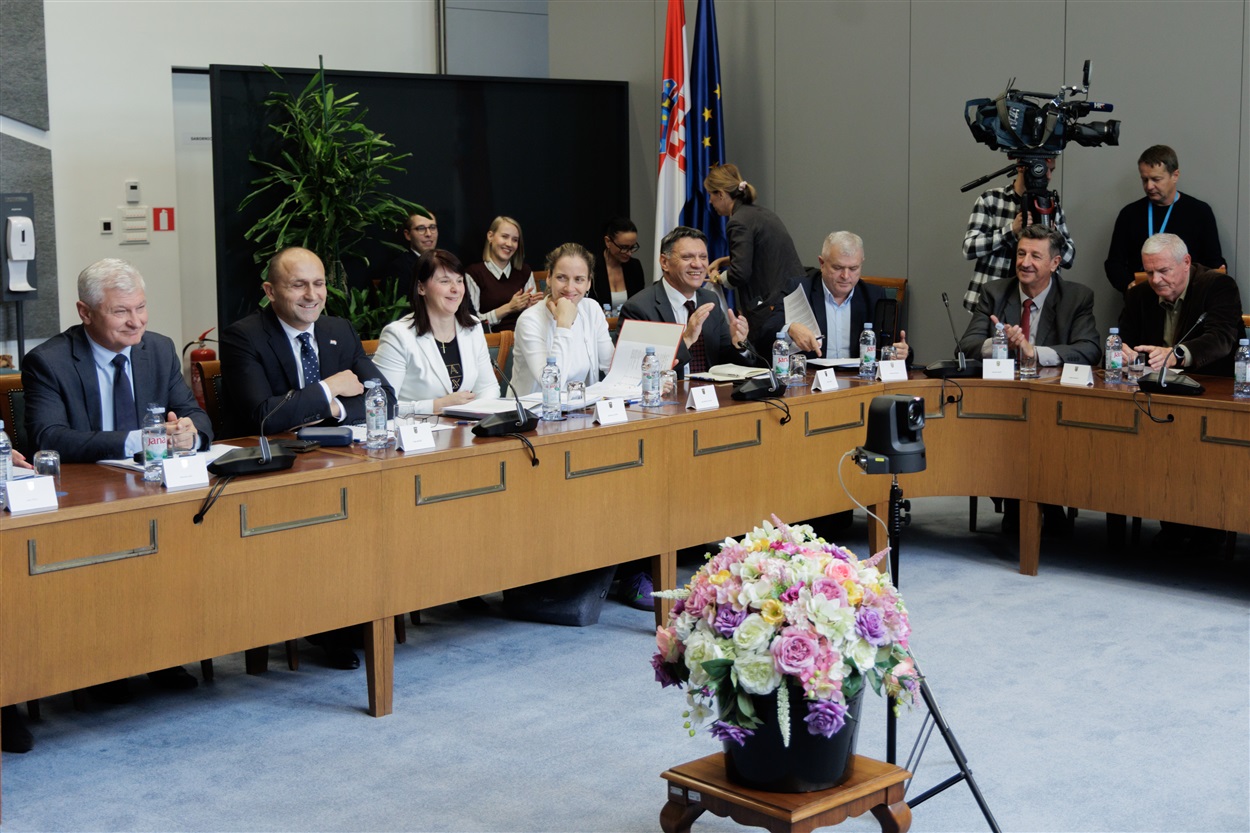
Zagreb - The Croatian Parliament's Defence Committee on Monday supported the final Defence Bill, which reintroduces basic military training, as well as the Bill on Service in the Armed Forces -- despite criticism from the Ombudswoman and opposition MPs regarding discrimination.
Ahead of the parliamentary debate, the Committee backed the Defence Bill with seven votes in favour, one against and two abstentions, while the Bill on Service in the Armed Forces passed more easily with nine votes in favour and one against.
The Defence Bill reintroduces a two-month basic military training programme. Compared with the previous proposal, the new version exempts judicial police trainees who apply for exemption and further clarifies provisions on employment priority.
Unemployed persons who have completed basic or voluntary military training and classified reservists will have hiring priority for permanent positions in state or local government bodies under equal conditions.
Those who, for religious or moral reasons, are unwilling to perform military duties may file a conscientious objection and instead complete three months of service in Civil Protection or four months in local government units. Participants in military training will receive €1,100 per month, while compensation for civilian service will be significantly lower and defined by government regulation.
Ombudswoman: Provisions insufficiently precise, especially regarding conscientious objection
Ombudswoman Tena Šimonović Einwalter again criticised the lack of clarity in several provisions, particularly those requiring "convincing religious or moral reasons" for civilian service."
"Stakeholders still don't have a full picture of the proposed changes because many details will be defined by decrees and regulations outside parliamentary control. The civilian service concept remains vague, as does how someone wishing to serve in Civil Protection rather than undergo military training will make their moral or religious reasons convincing. Previously, an interdepartmental commission appointed by the Ministry of Social Policy decided on conscientious objection, but now this will be handled by a government body -- the Ministry of the Interior Ministry, and there will be no right to appeal, which makes civilian service more difficult," she said.
While the Ombudswoman called some provisions discriminatory, Defence Minister Ivan Anušić argued that the bill complies with the Constitution and the Anti-Discrimination Act.
"Not every difference in treatment constitutes discrimination. Employment priority under equal conditions already exists in other laws. Those who choose to wear a uniform and carry a weapon deserve priority over those serving in local units or Civil Protection. This is not discrimination -- it's a logical ranking of people based on their choices," he stated.
Bauk: Abolishing Civilian Service Act is problematic
Both the Ombudswoman and Committee Chair Arsen Bauk (SDP) objected to the fact that the new law abolishes the existing Civilian Service Act.
"The SDP supports reintroducing military service because we have realised there is a risk of having an army without soldiers in the near future. The provisions on the duration of basic military training and civilian service are acceptable to us, but abolishing the Civilian Service Act is problematic. We are considering proposing that the government be required to draft a new Civilian Service Act within a year," Bauk said.
He added that giving hiring priority to those who complete basic military training is a legitimate incentive, but noted that it is unfair to those who never had the opportunity to serve, since compulsory military service was abolished in 2008, and now they are too old to participate -- as well as to women, for whom basic military training is voluntary. For that reason, SDP members abstained from voting on the Defence Bill but supported the Bill on Service in the Armed Forces.
We Can! MP: Civilian service work should be paid fairly
We Can! MP Marin Živković requested an analysis justifying the decision to introduce basic military training, to which the minister replied that the documents were classified. Živković warned that mandatory training will replace voluntary service, which previously attracted motivated young people interested in military careers. He also criticised the pay disparity between those performing military and civilian service.
"Do you think €100 a month for four months of hard physical labour in local units -- such as road repair -- is fair or dignified? Why is civilian service treated differently? It lasts longer, yet pays less. That's not fair," he said.
Živković also objected to a change that limits the Defence Committee's oversight of Ministry of Defence procurements. The committee will now issue opinions only on contracts above €15 million, while those between €5 and €15 million will merely be reported annually.
"We'll propose an amendment to restore our right to review all procurements over €5 million, as before, given the number of past procurement scandals,” he said, prompting HDZ MPs to respond that We Can! lacks the moral authority to criticise anyone.
"Start with yourselves -- show us procurements in Zagreb, starting with the Hippodrome affair and beyond. You have no moral right to lecture others," they retorted.
HDZ MPs defended the legislative changes, saying they represent progress. The amendments were also supported by external committee members Željko Sačić, Vinko Kovačić, Krešimir Ćosić, Slavko Barić and Matko Kuzmanić.
